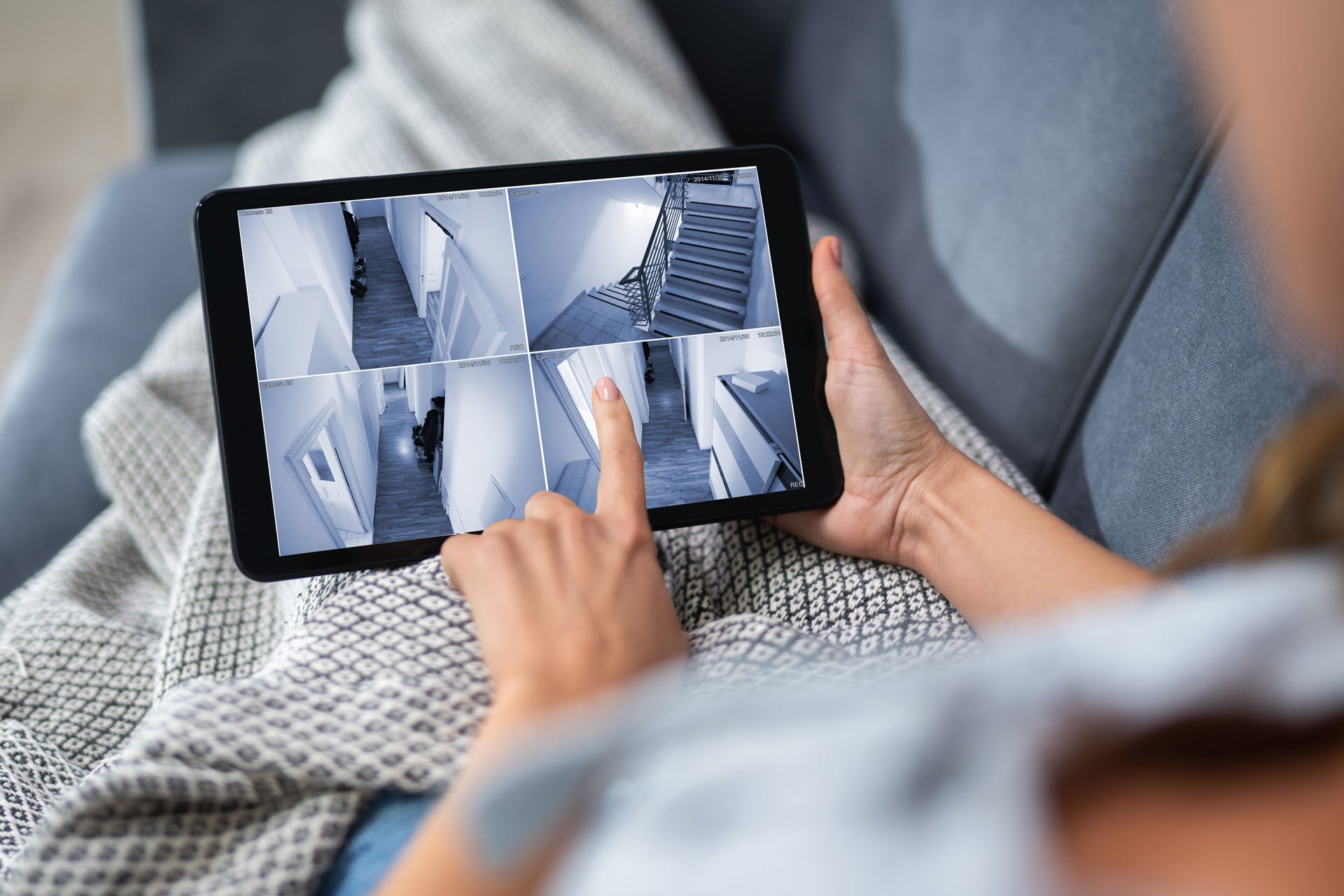
While the phrase ‘smart home’ evokes visions of futuristic devices with blue LED lights, much of our everyday technology was once considered ‘smart’. Toasters, vacuum cleaners and refrigerators were revolutionary, making many of our daily tasks easier.
By Amy McDonnell
Nowadays, modern smart home devices help us live greener lives, stay in control of our homes and increase security, with mammoth tech companies like Amazon and Google investing billions into the industry.
And it’s working. More than a quarter of Brits own one or more smart home devices[1], and with every new gadget to hit the market, controlling your home becomes easier. The technology has moved past just asking Alexa if it’s raining outside – you can now set up an entire surveillance system from your mobile phone and although only 3% of UK homes currently own a smart security device[2], it’s quickly changing the face of home security.
Getting smart with security
Smart security systems usually feature a combination of cameras, motion detectors and window and door sensors connected a central hub linked to your home WiFi network.
Unlike traditional burglar alarms, you can connect your system to an app that triggers notifications when someone comes to your door, lets you speak to delivery drivers while you’re at work and – probably most importantly – detects intruders attempting to enter your home in real time.
How well do you really know your competitors?
Access the most comprehensive Company Profiles on the market, powered by GlobalData. Save hours of research. Gain competitive edge.

Thank you!
Your download email will arrive shortly
Not ready to buy yet? Download a free sample
We are confident about the unique quality of our Company Profiles. However, we want you to make the most beneficial decision for your business, so we offer a free sample that you can download by submitting the below form
By GlobalDataFor an extra layer of protection, some companies offer subscription services that keep your devices running if your connection goes down, as well as optional 24/7 assistive monitoring.
Should I be concerned about hackers?
As your home becomes smarter, it’s entirely possible for a stranger to gain access to your devices. Especially if you don’t have the appropriate protection set up. We recommend you:
- Update your default Wi-Fi and smart device passwords
- Keep your devices up to date so you’re always using the latest software
- Enable any two-factor verification available
Remember, no system is 100% safe, but by taking steps to secure your devices you’re making it less likely you’ll be targeted.
How smart homes are impacting home insurance
While smart home devices can potentially make our homes safer, they haven’t yet affected how we approach home insurance. That isn’t to say that the industry isn’t loosening its legacy policies.
Home insurance company Neos is leading the way by using smart security to help minimise the chances of costly home damage.
Underwritten by leading UK insurance company Aviva, customers can sign up to an inclusive home insurance policy that comes with up to nine wireless smart home sensors and cameras at no extra cost.
Using the free app, users can detect water leaks, fires or intruders, with instant alerts to their mobile phones.
COO of Neos Chris Mansfield says, “The connected home has bought with it the potential to re-evaluate traditional insurance practices and the customer value proposition. With the use of connected smart tech, insurers can now proactively protect their customers’ homes reducing the need to make a claim. Should the worst happen, the insurer is immediately available via the app to offer a range of connected services to help the customer get back up and running.
At Neos, we see this as a win for all parties. As well as having a non-traditional, highly engaged relationship with our customers, our products and services provide a better chance of preventing damage before it happens, reducing the cost of claims. We are set to continue to challenge the traditional insurance model by adding exciting and new value-added services for our customers built around our award-winning smart tech and app.”
The future of smart homes
The industry still has a long way to go in gaining the trust of many sceptics. Cracking down on security breaches is the first step – and while Nest is making two-factor authentication mandatory for all its products, 39% of non-owners still fear hacking and cyber-attacks and 36% worry about data privacy.
But, whether it’s smart speakers, thermostats or state-of-the-art security systems, smart homes are fast becoming the norm. According to Statista[3], around 31 billion devices will be connected to the internet by 2020, with that number growing to 75.4 billion by 2025.
[1] https://yougov.co.uk/topics/technology/articles-reports/2018/08/10/almost-quarter-britons-now-own-one-or-more-smart-h
[2] https://yougov.co.uk/topics/technology/articles-reports/2018/08/10/almost-quarter-britons-now-own-one-or-more-smart-h
[3] https://www.statista.com/statistics/471264/iot-number-of-connected-devices-worldwide/


